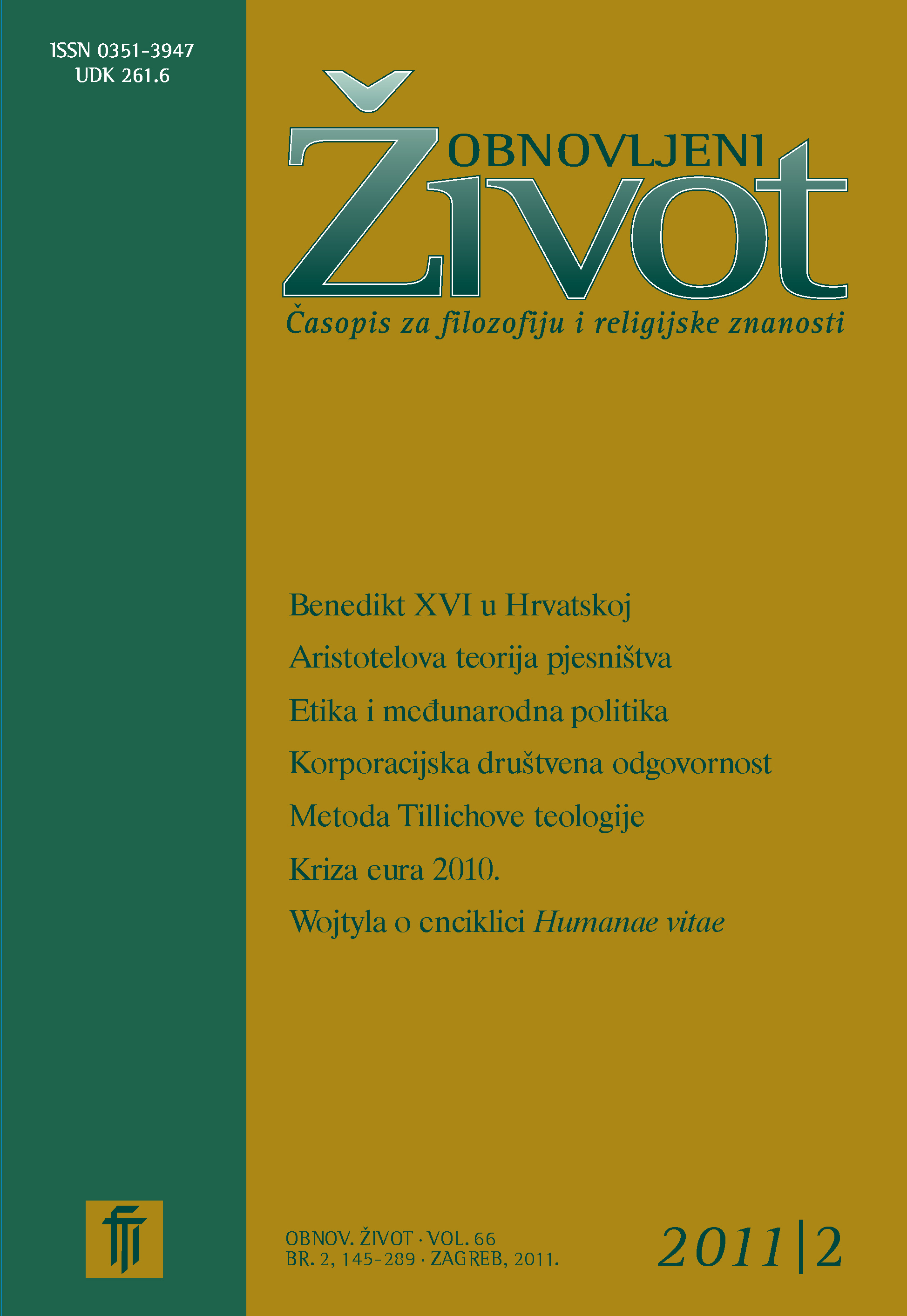Aristotel's Περì ποιητικῆς
Understanding the Constitutive Elements of Aristotel's Poetic Theory in the Optics of Gadamer's Concept of Art
Keywords:
Aristotel, Περì ποιητικῆς, »The Lost Rose«, Tractatus Coislinianus, mimesis, Gadamer, recognition, tragedy, comedy, homo ludensAbstract
»Every word of the Philosopher, by whom even saints and prophets swear, has overturned the image of the world« wrote Umberto Eco in his renowned novel »The Name of the Rose« in which the plot revolves around the mystery of the lost second volume of the Philospher's »Poetics« (Greek: Περì ποιητικῆς). The fact that this document possibly never existed, as commentators, scholars and researchers into Aristotel's philosophical corpus have been quoted for centuries as saying, has awakened even greater interest in the study and interpretation of the content of Aristotel's »Poetics.« While some consider that, based on reconstructions of some sections of the existing content of »Poetics« and on the so-called Tractatus Coislinianus, it is possible to recapture the context of the missing document - a book on comedy (Cooper, Janko), others do not dare undertake anything of the kind, claiming that no firm proofs of its existence can be provided (Golden). Beyond these, sometimes diachronic, sometimes synchronic assumptions on Aristotel's »Poetics« which provoke the imagination and the scientific eros, this work of Aristotel's, in the form in which it is accessible after two and a half thousand years, contains between the lines, the mystery of man as a creature who has been gifted with (as no other creature has) the threefold capacity for imaginativeness, creativity and imitation. »Poetics« deals mainly with the former, since, in the opinion of the author, it encompasses the first two. The aim of the author is to inquire into, clarify and interpret anthropological and ethical aspects of Aristotel's »Poetics«
Downloads
Published
Issue
Section
License
Jednom prihvaćeni članak obvezuje autora da ga ne smije objaviti drugdje bez dozvole uredništva, a i tada samo uz bilješku da je objavljen prvi put u Obnovljenom životu. Uredništvo će obavijestiti autora o prihvaćanju ili neprihvaćanju članka za objavljivanje.
Članci objavljeni u časopisu se, uz prikladno navođenje izvora, smiju besplatno koristiti u obrazovne i druge nekomercijalne svrhe.


